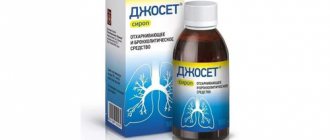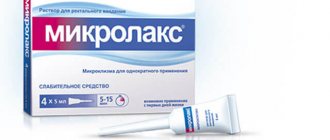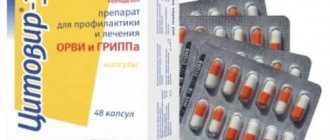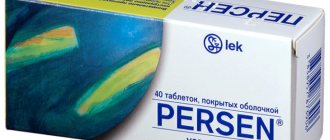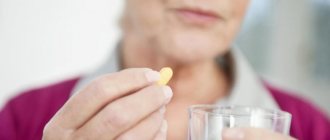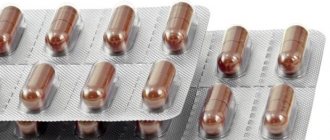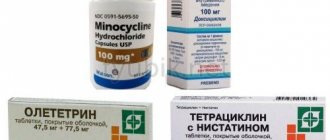Stock
active words:
100 ml rosemary: divar from medicinal groves (herb polina pontiiskogo /
Artemisia pontis L.
/ 4.196 g, herb thyme /
Satureja hortensis L.
/ 0.728 g, clove buds /
Syzygium aromaticum (L.) Merr. et LM Perry
/ 3.646 g, black pepper fruit /
Piper nigrum L.
/ 1.199 g, ginger rhizomes /
Zingiber officinale Roscoe
/ 4.196 g);
additional speeches:
ammonium chloride, ocetate tartar, purified water.
Is it possible to gargle with stomatophyte for a sore throat? – Website about
Latest update of the description by the manufacturer 05.06.2009
- Dental products in combinations
| Extract liquid | 100 g |
| calamus rhizomes | 6.5 g |
| arnica herb | 6.5 g |
| oak bark | 13 g |
| peppermint leaves | 6.5 g |
| chamomile flowers | 13 g |
| common thyme herb | 6.5 g |
| Salvia officinalis leaves | 13 g |
in dark glass bottles of 45 or 120 ml, complete with a measuring cup; in a cardboard pack.
Pharmacological action - anti-inflammatory.
The drug has an astringent, emollient, anti-inflammatory effect on the oral mucosa due to the content of extracts of oak bark, sage leaves and chamomile flowers.
In addition, tannins and essential oils contained in the preparation have an antiseptic (antibacterial and antifungal effect) on the mucous membrane of the oral cavity and gums.
In vitro tests
have proven that essential oils of sage and chamomile have a bactericidal effect against gram-positive and gram-negative bacteria, as well as a fungicidal effect against
Candida albicans
.
- serous-purulent inflammation of the gums and oral cavity;
- superficial and deep periodontitis;
- serous inflammation of the tongue;
- tendency to bleeding gums and periodontal disease;
- zoonotic inflammation of the oral cavity;
- fungal inflammation of the oral mucosa caused by yeast.
- Allergy to arnica, chamomile and other plants of the genus Asteracae.
Adverse interactions are still unknown. For this reason, the drug can be combined with other drugs.
- Rinse with a 15% aqueous solution of the drug (dissolve about 10 ml of the drug in 1/4 cup of boiled water).
- Keep out of the reach of children.
- Do not use after the expiration date stated on the package.
In a place protected from light, at a temperature not exceeding 25 °C. 3 years.
Category ICD-10 Synonyms of diseases according to ICD-10
| B37.0 Candidal stomatitis | Atrophic candidiasis of the oral cavity |
| Fungal diseases of the oral cavity | |
| Fungal infections of the mouth | |
| Fungal infectious and inflammatory diseases of the oral cavity | |
| Candidiasis of the gastrointestinal tract | |
| Candidiasis of the skin and mucous membranes of the mouth and pharynx | |
| Oral candidiasis | |
| Oral candidiasis | |
| Candidiasis with damage to the skin and mucous membranes | |
| Candidiasis of the oral mucosa | |
| Candidiasis of the mucous membranes | |
| Candidiasis of mucous membranes and skin | |
| Candidiasis of the mucous membranes of the oral cavity and pharynx | |
| Candidiasis of the oral cavity and pharynx | |
| Mucocutaneous candidiasis of the oral cavity | |
| Mycotic jam | |
| Oral thrush | |
| Oropharyngeal candidiasis | |
| Oropharyngeal candidiasis | |
| Chronic atrophic candidiasis of the oral cavity | |
| Chronic candidiasis of the mucous membranes | |
| K05.2 Acute periodontitis | Periodontal diseases |
| Periodontitis | |
| Acute periodontitis | |
| Periodontal disease complicated by gingivitis | |
| Pericoronitis | |
| K05.4 Periodontal disease | Alveolar pyorrhea |
| Amphodontosis | |
| Pyorrhea | |
| Superficial and deep periodontal disease | |
| Chronic periodontal disease | |
| K06.8 Other specified changes in the gingiva and edentulous alveolar margin | Inflammation of the gingival margin |
| Bleeding from gums | |
| Bleeding gums | |
| Epstein cysts | |
| K06.9 Change in gingiva and edentulous alveolar margin, unspecified | Gum inflammation |
| Gum disease | |
| Bleeding from gums | |
| K12 Stomatitis and related lesions | Bacterial stomatitis |
| Inflammatory diseases of the oral cavity | |
| Inflammatory diseases of oral tissues | |
| Inflammatory processes in the oral cavity | |
| Fungal diseases of the oral cavity | |
| Fungal infections of the mouth | |
| Fungal infectious and inflammatory diseases of the oral cavity | |
| Oral disease | |
| Infectious and inflammatory disease of the oral cavity | |
| Exacerbation of inflammatory diseases of the pharynx and oral cavity | |
| Recurrent ulcerative stomatitis | |
| Stomatitis | |
| Stomatitis | |
| Angular stomatitis | |
| Chronic recurrent stomatitis | |
| Erosive and ulcerative lesions of the oral mucosa | |
| Erosive and ulcerative lesions of the oral mucosa | |
| Erosion of the oral mucosa | |
| Ulcerative-necrotic diseases of the oral mucosa | |
| Ulcerative-necrotic diseases of the oral mucosa | |
| Ulcerative-necrotic lesions of the oral mucosa | |
| Ulcerative-necrotizing gingivostomatitis | |
| Ulcerative stomatitis | |
| K14.9 Disease of tongue, unspecified | Inflammation of the tongue |
The information provided on drug prices does not constitute an offer to sell or purchase goods. The information is intended solely for comparing prices in stationary pharmacies operating in accordance with Article 55 of the Federal Law “On the Circulation of Medicines” dated April 12, 2010 N 61-FZ.
Name of the drug Series Expiration date Price for 1 unit Price per package, rub. Pharmacies
| Stomatofitextract liquid, 1 pc. dark glass bottle 100 ml with a measuring cup (cup), cardboard pack 1 No. P N013059/01, 2007-08-07Phytopharm Klenka (Poland) | |||
| 245 | 245.00 To the pharmacy | ||
| 12419 | 2021-08-01 | 242 | 242.00 To the pharmacy |
| 245 | 245.00 To the pharmacy | ||
| 232 | 232.00 To the pharmacy | ||
| Stomatofitextract liquid, 1 pc. dark glass bottle 50 ml with measuring cup (cup), cardboard pack 1 No. P N013059/01, 2007-08-07Phytopharm Klenka (Poland) | |||
| 12169 | 2021-06-01 | 185 | 185.00 To the pharmacy |
| 168 | 168.00 To the pharmacy |
Source: https://xn--5-btbf2a.xn--p1ai/angina/mozhno-li-poloskat-gorlo-stomatofitom-pri-angine.html
Pharmacological authorities
Pharmacodynamics.
Maraslavin® is a combination of rosin preparations for dental stagnation in dentistry. It has antiseptic, disinfectant, anti-inflammatory, anti-allergic, astringent, local anesthetic and regenerative effects. When the drug is locally infused into the kidney, hyperemia of the soft tissues is prevented and exudation is promoted. The presence of ammonium chloride in a hypertonic concentration leads to a decrease in exudation, the removal of toxic substances from periodontal guts, and stimulates renal processes. As a result of the fibrous action, the course of treatment prevents an increase in collagen fibrils and their strengthening, meaning a decrease in swelling and bleeding. Regular use of the drug Maraslavin® after complete removal of tartar and root surface removal removes the unpleasant odor from the mouth. The drug reduces sensitivity in case of exposed teeth and lowers the pH of acidic acid, acting bacteriostatically on the fusospirilous microflora of the oral cavity. The ash papillae adhere tightly to the necks of the teeth. The depth of periodontal tissues, which are determined by special periodontal probes, is significantly changing.
Grass Polina pontiyskogo / Artemisia pontis L.
/, before entering the preparation, contain the active ingredients - essential oils, among which the blue-green essential oil has the most activity. The herb also contains thujol alcohol, thujone ketone, terpene, octolic acid and isovaleric acid.
The main pharmacological effects of systemic stagnation include stimulation of savoury receptors, sap production (sleep has a bactericidal effect). With local stagnation, it accelerates the processes of regeneration and healing of wounds, wounds.
Savory herb / Satureja hortensis L.
/ avenge essential oils: carvacrol, paracymol; tannins and lickable speech. It has an astringent, bactericidal and antispasmodic effect.
Clove buds / Syzygium aromaticum (L.) Merr. et L.M. Perry
/ replace essential oils: eugenol, acetoeugenol, vanillin and caryophyllene. Essential oils of cloves are used in dental practice as an antiseptic agent, and their stench can also have a soothing effect.
Black pepper / Piper nigrum L.
/ contain approximately 1.2-2.6% essential oils, which provide antimicrobial and therapeutic effects in periodontitis.
Vin stimulates the receptors of the saccharine nerves and promotes increased secretion of the mucus and mucus. It also has an insecticidal effect.
The medicinal warehouse also includes the ginger root / Zingiber officinale Roscoe
/. It is possible to contain up to 3% essential oils, arylalkanes, gingerdiols and starch. These main components have the following pharmacological effects: stimulation of salivary, scutaneous and gallbladder secretions, anti-vomiting, antioxidant, antiplatelet, anti-lipidemic and anti-inflammatory actions.
Based on the presence of essential oils and other types of medicinal plants, the drug contains a pronounced anti-inflammatory and antiseptic combination. The presence of tannins, acids and barberries in the warehouse is combined with antiexudative, antihemorrhagic and local anesthetic combinations.
Pharmacokinetics.
Daily data on the pharmacokinetics of various storage components and their combinations during local curing on clear or clear husks.
pharmachologic effect
Maraslavin is classified as a combined antiseptic of plant origin, used mainly in dental practice.
In addition to the antimicrobial effect, Maraslavin has astringent, antiallergic, anti-inflammatory and local analgesic effects. The drug enhances the reparative properties of damaged tissues.
The pharmacological activity of Maraslavin is determined by the action of the components of its formula.
Wormwood, which contains malic and succinic acids, phytoncides, flavonoids, vitamins C, K, B6, carotene and essential oils, has a stabilizing effect on the walls of blood vessels, inhibits the inflammatory response, and has moderate antimicrobial activity.
The inflorescences of the clove tree, which are based on tannin, saponins, alkaloids, acetic acid and eugenol, have an anti-inflammatory and antiseptic effect. The active substances of the clove tree strengthen the vascular wall, thereby reducing the exudative component of inflammation, and have a deodorizing, tanning and analgesic effect.
The active components of black pepper fruits (microelements, saponins, vitamin C, essential oils and carotene) cause a hemostatic effect and enhance cellular immunity.
Thyme herb, containing corvacrol, essential oils and tannins, ensures the elimination of pain and the antispasmodic effect of Maraslavin.
Ginger rhizomes, in addition to their deodorizing effect, have sclerosing activity.
Wine vinegar, which provides an acidic reaction to the product, has an additional bacteriostatic effect.
Maxigan - instructions, composition, dosage, side effects of use
Contraindicated
Sensitivity to all speeches or to any other words to the drug has been increased.
Sensitivity has been increased to other plants of the aister family (composite flowers) and to Peruvian balsam.
It is not recommended to administer the drug to patients with an active abscess and evidence of purulent exudation.
Self-administration of the drug is not recommended when the loss of bone structures occurs due to the inability to adhere to pathological changes in periodontal tissue in the depths.
Contraindications for use
- hypersensitivity to the components of the drug.
- purulent exudation or active abscess.
- age under 14 years.
There have been no systematic studies of the effect of the drug on the health and development of the fetus during pregnancy and lactation, therefore during these periods it can only be taken under the supervision of a specialist and only after assessing the benefit-risk ratio.
It is not recommended for use in cases of proven atrophy of bone structures due to the inability to influence pathologically altered periodontal tissues in the deep areas of the bone.
Do not make the decision to replace it yourself; consult your doctor.
Features of good stagnation
It is necessary to take into account that, instead of a large amount of organic acids, rosacea exhibits a weak demineralizing effect on the hard dental tissue, and should not be recommended for caries and dentition disorders (crowded teeth, incorrect strong bite).
As the doctor requires, it is necessary to carry out a thorough sanitation of the teeth using orthopedic methods. It is recommended for the patient to be enriched with vitamins and supplemented with vitamins A and C. At the time of bathing, the infused urchins (chasnik, cybul, pots, etc.) are removed, without brushing your teeth. brush with paste or vikorist to rinse the mouth empty disinfectant liquid. Rinse your mouth with cold water morning and evening. A trace of the uniqueness of a painful experience in the sun.
Method of congestion and dosage
The drug is intended for mucosal congestion.
The children have grown up since the age of 14:
Before starting a dental procedure, the dentist carries out further mechanical therapy of the entire dentition, which includes the removal of supra- and sublingual tartar and dental plaque, polishing and curettage without lambo with a depth of periodontal tartar up to 5.5 mm. Obvious iatrogenic factors are adjusted and, if indicated, vibratory grinding is carried out to reduce traumatic occlusion.
The drug is concentrated in 10-15 ml doses for rinsing the mouth for 2-3 months at intervals. It is necessary to conduct at least 17-20 sessions per month. After completion of active treatment, supportive therapy is carried out with control skin closures for 5-6 months. The last inspection is due 12 months after the start of harvesting.
What does Maraslavin treat?
Treatment with Maraslavin has a healing effect on the restoration of oral tissues, prevents allergic reactions and inflammatory processes, increases the density of collagen fibers and stimulates their growth, strengthening interaction with the roots of teeth, and promotes the regeneration of epithelium and gingival tissue. The drug also has a local analgesic effect.
During the first doses of the solution, hyperemia, irritation and swelling of the gums may occur.
In case of pyorrheic periodontal disease, taking Maraslavin causes increased secretion of pus, however, with continued therapy, the amount of exudate decreases and disappears completely over time. The condition of the gums and gingival papillae is normalized.
In the hemorrhagic form of periodontal disease, the effect of Maraslavin reduces pain in the gums, minimizes the amount of swelling, helps stop bleeding and return the gums to their natural size. The neck of the tooth and the gingival papillae come into reliable contact with each other.
Imudon tablets are used to increase the body's immunity and actively fight inflammatory and infectious diseases of the oral cavity.

